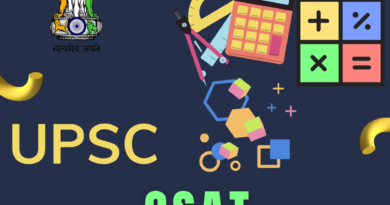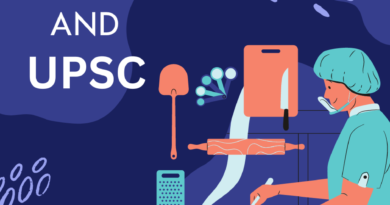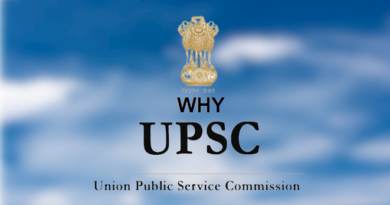IS COACHING REQUIRED FOR UPSC PREPARATION?
The Union Public Service Commission (UPSC) is a highly competitive exam that requires extensive preparation and dedication. according to byjus many aspirants are often confused about whether they should take coaching or not. In this essay, we will discuss IS COACHING REQUIRED FOR UPSC PREPARATION ?
To begin with, let us first understand what UPSC is and what it entails. The UPSC is an examination that is conducted by the Union Public Service Commission for recruitment to various civil services in India. These civil services include the Indian Administrative Service (IAS), Indian Police Service (IPS), Indian Foreign Service (IFS), and other allied services.
The UPSC examination is considered to be one of the toughest competitive exams in the country, with lakhs of aspirants appearing for it every year. The examination is conducted in three stages, namely, the preliminary exam, the main exam, and the interview.
Now let us discuss the advantages and disadvantages of taking coaching for UPSC preparation and try to get answer of IS COACHING REQUIRED FOR UPSC PREPARATION?
Advantages of taking coaching for UPSC preparation:
Structured and organized study material: Coaching institutes like Byjus, Vision IAS etc provide students with structured and organized study material that helps them in their preparation. The study material covers all the topics that are part of the UPSC syllabus and is designed in a way that is easy to understand.
Experienced faculty: Coaching institutes like Byjus , VISION IAS , Bhadra IAS academy, Academy of civil services, SPM IAS academy,Takshasila IAS academy have experienced faculty members who have a deep understanding of the UPSC exam and its requirements. They can guide students on how to approach different subjects and topics and can also provide them with tips and tricks to solve the questions more effectively.
Regular mock tests: Mock tests are an essential part of UPSC preparation as they help students understand their strengths and weaknesses. Coaching institutes conduct regular mock tests that help students to assess their preparation level and identify areas where they need to improve.
Group discussions: Coaching institutes also conduct group discussions that help students to exchange ideas and gain knowledge. Group discussions also help students to develop their communication skills, which are essential for the interview stage of the UPSC examination.
Time management: Time management is crucial for the UPSC exam, and coaching institutes can help students to manage their time by providing them readymade matrerials which reduces their efforts towads preparation and the experianced faculty guide them with thier experiance so students can directly start their preparation right fron first day without wasting their valuable time.
READ MORE – How to start your preparation for UPSC
Disadvantages of taking coaching for UPSC preparation:
High Cost
One of the biggest disadvantages of coaching for the UPSC exam is the high cost. Coaching institutes charge a significant amount of money, which can be a huge burden for students from low-income families. Even for students from middle-class families, the cost of coaching can be a significant expense.
Not a Guarantee for Success
While coaching can provide students with guidance, study material, and practice tests, it does not guarantee success in the UPSC exam. Ultimately, success in the exam depends on the hard work and dedication of the student. Coaching can only provide a supportive environment and guidance.
Lack of Personal Attention
Coaching institutes often have a large number of students enrolled, which can result in a lack of personal attention for each student. Teachers may not be able to give individual attention to each student, which can be a disadvantage for students who require more guidance and support.
Pressure to Keep Pace
Coaching institutes often have a set pace and curriculum, and students are expected to keep up with the pace. This can be a disadvantage for students who require more time to understand a particular topic or concept. Students who cannot keep up with the pace may feel discouraged and demotivated.
Dependence on Coaching
Coaching can create a dependence on the institute and the teachers. Students may become reliant on the institute for study material, guidance, and support. This can result in a lack of self-confidence and self-motivation, which can be a disadvantage when facing the UPSC exam.
Limited Resources
Coaching institutes may have limited resources, which can be a disadvantage for students. For example, there may be a limited number of practice tests or study material available. Students may not have access to a wide range of resources, which can limit their preparation for the exam.
Lack of Flexibility
Coaching institutes often have a fixed schedule and curriculum, which can be a disadvantage for students who require more flexibility. For example, students who work part-time or have other commitments may not be able to attend coaching classes regularly. This can limit their preparation for the exam.
Emphasis on Rote Learning
Coaching institutes often focus on rote learning, which can be a disadvantage for students. Rote learning involves memorizing information without understanding the concepts. This approach can limit the critical thinking and problem-solving skills of students, which are important for success in the UPSC exam.
Peer Pressure
Coaching institutes can create a sense of peer pressure among students. Students may feel pressured to perform better than their peers, which can create a stressful environment. This can be a disadvantage for students who thrive in a supportive and encouraging environment.
Lack of Individualized Approach
Coaching institutes often have a standardized approach to teaching and learning. This can be a disadvantage for students who require a more individualized approach. For example, students who have a learning disability or require special attention may not receive the support they need.
In conclusion, coaching for the UPSC exam has its advantages and disadvantages. While coaching can provide students with guidance, study material, and practice tests, it also has its drawbacks, including high cost, lack of personal attention, pressure to keep pace, dependence on coaching, limited resources, lack of flexibility, emphasis on rote learning, peer pressure, and lack of an individualized approach.
I hope this article now answer the the question IS COACHING REQUIRED FOR UPSC PREPARATION?
क्या यूपीएससी की तैयारी के लिए कोचिंग जरूरी है?
संघ लोक सेवा आयोग (यूपीएससी) एक अत्यधिक प्रतिस्पर्धी परीक्षा है जिसके लिए व्यापक तैयारी और समर्पण की आवश्यकता होती है। कई अभ्यर्थी अक्सर इस बात को लेकर भ्रमित रहते हैं कि उन्हें कोचिंग लेनी चाहिए या नहीं। इस निबंध में हम चर्चा करेंगे कि यूपीएससी की तैयारी के लिए (IS COACHING REQUIRED FOR UPSC PREPARATION?) कोचिंग जरूरी है या नहीं।
शुरुआत करने के लिए, आइए पहले यह समझें कि यूपीएससी क्या है और इसमें क्या शामिल है। यूपीएससी एक परीक्षा है जो भारत में विभिन्न सिविल सेवाओं में भर्ती के लिए संघ लोक सेवा आयोग द्वारा आयोजित की जाती है। इन सिविल सेवाओं में भारतीय प्रशासनिक सेवा (आईएएस), भारतीय पुलिस सेवा (आईपीएस), भारतीय विदेश सेवा (आईएफएस) और अन्य संबद्ध सेवाएं शामिल हैं।
UPSC परीक्षा को देश की सबसे कठिन प्रतियोगी परीक्षाओं में से एक माना जाता है, जिसमें हर साल लाखों उम्मीदवार इसमें शामिल होते हैं। परीक्षा तीन चरणों में आयोजित की जाती है, अर्थात् प्रारंभिक परीक्षा, मुख्य परीक्षा और साक्षात्कार।
आइए अब हम यूपीएससी की तैयारी के लिए कोचिंग लेने के फायदे और नुकसान पर चर्चा करें।
यूपीएससी की तैयारी के लिए कोचिंग लेने के फायदे:
संरचित और संगठित अध्ययन सामग्री: कोचिंग संस्थान छात्रों को संरचित और संगठित अध्ययन सामग्री प्रदान करते हैं जो उनकी तैयारी में मदद करता है। अध्ययन सामग्री में उन सभी विषयों को शामिल किया गया है जो UPSC पाठ्यक्रम का हिस्सा हैं और इसे इस तरह से डिज़ाइन किया गया है जिसे समझना आसान हो।
अनुभवी फैकल्टी: कोचिंग संस्थानों में अनुभवी फैकल्टी सदस्य होते हैं जिन्हें यूपीएससी परीक्षा और इसकी आवश्यकताओं की गहरी समझ होती है। वे विद्यार्थियों का मार्गदर्शन कर सकते हैं कि विभिन्न विषयों और विषयों को कैसे हल किया जाए और उन्हें अधिक प्रभावी ढंग से प्रश्नों को हल करने के लिए टिप्स और ट्रिक्स भी प्रदान कर सकते हैं।
नियमित मॉक टेस्ट: मॉक टेस्ट यूपीएससी की तैयारी का एक अनिवार्य हिस्सा हैं क्योंकि वे छात्रों को उनकी ताकत और कमजोरियों को समझने में मदद करते हैं। कोचिंग संस्थान नियमित मॉक टेस्ट आयोजित करते हैं जो छात्रों को उनकी तैयारी के स्तर का आकलन करने और उन क्षेत्रों की पहचान करने में मदद करते हैं जहां उन्हें सुधार करने की आवश्यकता है।
समूह चर्चा: कोचिंग संस्थान समूह चर्चा भी आयोजित करते हैं जो छात्रों को विचारों का आदान-प्रदान करने और ज्ञान प्राप्त करने में मदद करते हैं। समूह चर्चा छात्रों को उनके संचार कौशल विकसित करने में भी मदद करती है, जो यूपीएससी परीक्षा के साक्षात्कार चरण के लिए आवश्यक हैं।
समय प्रबंधन: यूपीएससी परीक्षा के लिए समय प्रबंधन महत्वपूर्ण है, और कोचिंग संस्थान छात्रों को रेडीमेड सामग्री प्रदान करके उनके समय का प्रबंधन करने में मदद कर सकते हैं जो तैयारी के लिए उनके प्रयासों को कम कर देता है और अनुभवी शिक्षक उन्हें अपने अनुभव के साथ मार्गदर्शन करते हैं ताकि छात्र सीधे अपनी तैयारी शुरू कर सकें पहले दिन से अपना कीमती समय बर्बाद किए बिना।
UPSC की तैयारी के लिए कोचिंग लेने के नुकसान:
उच्च लागत
यूपीएससी परीक्षा के लिए कोचिंग का सबसे बड़ा नुकसान उच्च लागत है। कोचिंग संस्थान एक बड़ी राशि चार्ज करते हैं, जो कम आय वाले परिवारों के छात्रों के लिए एक बड़ा बोझ हो सकता है। यहां तक कि मध्यवर्गीय परिवारों के छात्रों के लिए भी कोचिंग का खर्च एक महत्वपूर्ण खर्च हो सकता है।
सफलता की गारंटी नहीं
जबकि कोचिंग छात्रों को मार्गदर्शन, अध्ययन सामग्री और अभ्यास परीक्षण प्रदान कर सकता है, यह यूपीएससी परीक्षा में सफलता की गारंटी नहीं देता है। आखिरकार, परीक्षा में सफलता छात्र की कड़ी मेहनत और समर्पण पर निर्भर करती है। कोचिंग केवल एक सहायक वातावरण और मार्गदर्शन प्रदान कर सकता है।
व्यक्तिगत ध्यान का अभाव
कोचिंग संस्थानों में अक्सर बड़ी संख्या में छात्र नामांकित होते हैं, जिसके परिणामस्वरूप प्रत्येक छात्र के लिए व्यक्तिगत ध्यान की कमी हो सकती है। शिक्षक प्रत्येक छात्र पर अलग-अलग ध्यान देने में सक्षम नहीं हो सकते हैं, जो उन छात्रों के लिए नुकसानदेह हो सकता है जिन्हें अधिक मार्गदर्शन और समर्थन की आवश्यकता होती है।
गति बनाए रखने का दबाव
कोचिंग संस्थानों में अक्सर एक निर्धारित गति और पाठ्यक्रम होता है, और छात्रों से गति बनाए रखने की अपेक्षा की जाती है। यह उन छात्रों के लिए नुकसानदेह हो सकता है जिन्हें किसी विशेष विषय या अवधारणा को समझने के लिए अधिक समय की आवश्यकता होती है। जो छात्र गति के साथ नहीं रह सकते हैं वे निराश और निराश महसूस कर सकते हैं।
कोचिंग पर निर्भरता
कोचिंग संस्थान और शिक्षकों पर निर्भरता पैदा कर सकता है। छात्र अध्ययन सामग्री, मार्गदर्शन और सहायता के लिए संस्थान पर निर्भर हो सकते हैं। इसका परिणाम आत्मविश्वास और आत्म-प्रेरणा की कमी हो सकता है, जो यूपीएससी परीक्षा का सामना करते समय एक नुकसान हो सकता है।
सीमित स्रोत
कोचिंग संस्थानों के पास सीमित संसाधन हो सकते हैं, जो छात्रों के लिए नुकसानदेह हो सकते हैं। उदाहरण के लिए, सीमित संख्या में अभ्यास परीक्षण या अध्ययन सामग्री उपलब्ध हो सकती है। छात्रों के पास संसाधनों की एक विस्तृत श्रृंखला तक पहुंच नहीं हो सकती है, जो परीक्षा के लिए उनकी तैयारी को सीमित कर सकती है।
लचीलेपन की कमी
कोचिंग संस्थानों में अक्सर एक निश्चित कार्यक्रम और पाठ्यक्रम होता है, जो उन छात्रों के लिए नुकसानदेह हो सकता है जिन्हें अधिक लचीलेपन की आवश्यकता होती है। उदाहरण के लिए, अंशकालिक काम करने वाले या अन्य प्रतिबद्धताओं वाले छात्र नियमित रूप से कोचिंग कक्षाओं में भाग लेने में सक्षम नहीं हो सकते हैं। यह परीक्षा के लिए उनकी तैयारी को सीमित कर सकता है।
रटकर सीखने पर जोर
कोचिंग संस्थान अक्सर रट्टा मारने पर ध्यान देते हैं, जो छात्रों के लिए नुकसानदेह हो सकता है। रटकर सीखने में अवधारणाओं को समझे बिना जानकारी को याद करना शामिल है। यह दृष्टिकोण छात्रों की आलोचनात्मक सोच और समस्या को सुलझाने के कौशल को सीमित कर सकता है, जो यूपीएससी परीक्षा में सफलता के लिए महत्वपूर्ण हैं।
साथियों का दबाव
कोचिंग संस्थान छात्रों में साथियों के दबाव की भावना पैदा कर सकते हैं। छात्र अपने साथियों से बेहतर प्रदर्शन करने का दबाव महसूस कर सकते हैं, जो एक तनावपूर्ण वातावरण बना सकता है। यह उन छात्रों के लिए नुकसानदेह हो सकता है जो सहायक और उत्साहजनक वातावरण में फलते-फूलते हैं।
व्यक्तिगत दृष्टिकोण का अभाव
कोचिंग संस्थानों में अक्सर शिक्षण और सीखने के लिए एक मानकीकृत दृष्टिकोण होता है। यह उन छात्रों के लिए नुकसानदेह हो सकता है जिन्हें अधिक व्यक्तिगत दृष्टिकोण की आवश्यकता होती है। उदाहरण के लिए, जिन छात्रों को सीखने की अक्षमता है या जिन्हें विशेष ध्यान देने की आवश्यकता है, उन्हें वह समर्थन नहीं मिल सकता है जिसकी उन्हें आवश्यकता है।
अंत में, यूपीएससी परीक्षा के लिए कोचिंग के अपने फायदे और नुकसान हैं। जबकि कोचिंग छात्रों को मार्गदर्शन, अध्ययन सामग्री और अभ्यास परीक्षण प्रदान कर सकता है, इसकी कमियां भी हैं, जिनमें उच्च लागत, व्यक्तिगत ध्यान की कमी, गति बनाए रखने का दबाव, कोचिंग पर निर्भरता, सीमित संसाधन, लचीलेपन की कमी, रट्टा सीखने पर जोर शामिल हैं। , सहकर्मी दबाव, और एक व्यक्तिगत दृष्टिकोण की कमी।




